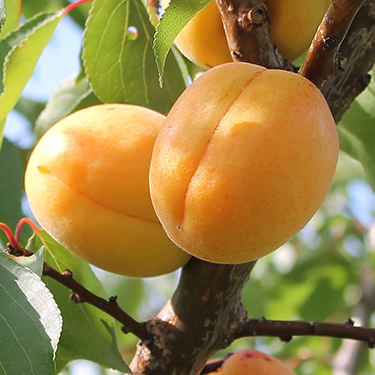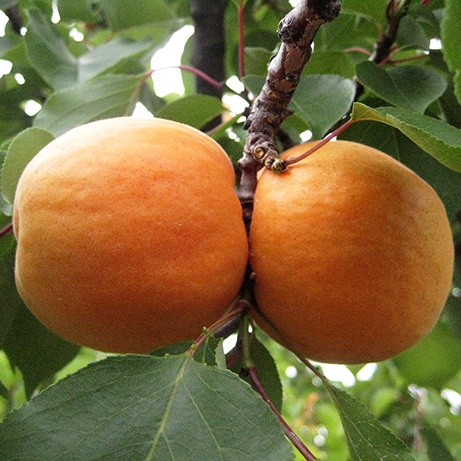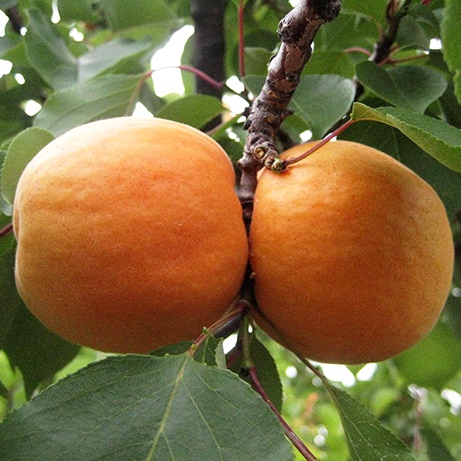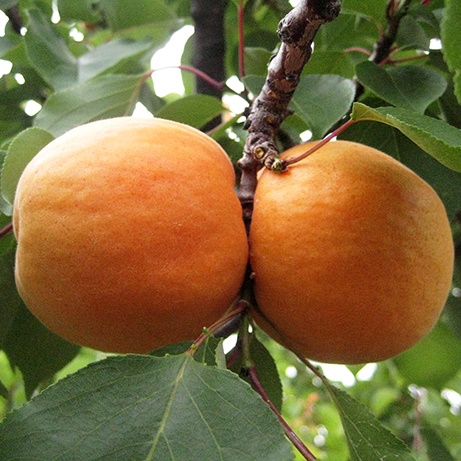Apricot : JERSEYCOT Semi-Dwarf (Mustang) (Orchard Grade)
$49.95
An 'orchard grade' is a tree that may be somewhat shorter, slightly crooked, or a bit scratched, or for some other reason is not a perfect front lawn specimen. These trees will work just as well in an orchard as a first or number one would, since they still produce the very same fruit.
Released from the New Jersey program in 1986, Jerseycot has inherited the extra late blooming capability from Zard, its Persian parent. The sweet, hint-of-melon flesh of this medium size, orange yellow fruit is too tender for commercial orchards, but is perfect in a backyard. Especially considering the trees outstanding resistance to mid-winter thaws, spring frosts and practically all apricot ailments. Reliable, heavy producer, so fruit size benefits from early thinning. Ripens mid to late July and needs to be picked before it drops.
SELF-FERTILE | ZONE 4 | HARVEST: MID-LATE JULY
Growing Tips
One of the key factors that determines cold-hardiness for tender fruit trees such as apricots and peaches is how well they harden off in the fall. Any activity that stimulates growth should be avoided after August 1. This includes fertilizing, overly frequent watering and pruning.



